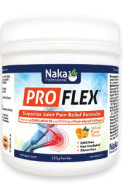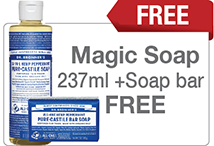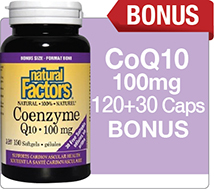Hyaluronic Acid (HA)
Understanding How Hyaluronic Acid Supports Joint Health
In the skincare world, a humble yet powerful molecule, hyaluronic acid (HA, has garnered attention for its remarkable properties. Despite its name, hyaluronic acid is not an aggressive chemical but a naturally occurring substance in the human body. This polysaccharide plays a crucial role in various biological processes, particularly in maintaining hydration, lubrication, and elasticity in tissues. Read more >-
 SUPERIOR JOINT PAIN RELIEF Naka Pro Flex has been formulated specifically to provide support for joint health. Featuring Glucosamine Hydrochloride, Hydrolyzed Collagen, MSM, Turmeric, Devil’s Claw, Bromelain and Boswellia, Hyaluronic Acid and Vitamin D Pro Flex helps develop and maintain bones, cartilage, teeth, gums, and collag...SUPERIOR JOINT PAIN RELIEF Naka Pro Flex has been formulated specifically to provide support for joint health. Featuring Glucosamine Hydrochloride, Hydrolyzed Collagen, MSM, Turmeric, Devil’s Claw, Bromelain and Boswellia, Hyaluronic Acid and Vitamin D Pro Flex helps develop and maintain bones, cartilage, teeth, gums, and collagen formation. In a delicious natural orange flavour, just one scoop of Pro Flex equals 8 caps. It is ideal for those who do not like to take or can not take regular capsules or tablets. [POWDER]+ Earn 39 Reward Points
SUPERIOR JOINT PAIN RELIEF Naka Pro Flex has been formulated specifically to provide support for joint health. Featuring Glucosamine Hydrochloride, Hydrolyzed Collagen, MSM, Turmeric, Devil’s Claw, Bromelain and Boswellia, Hyaluronic Acid and Vitamin D Pro Flex helps develop and maintain bones, cartilage, teeth, gums, and collag...SUPERIOR JOINT PAIN RELIEF Naka Pro Flex has been formulated specifically to provide support for joint health. Featuring Glucosamine Hydrochloride, Hydrolyzed Collagen, MSM, Turmeric, Devil’s Claw, Bromelain and Boswellia, Hyaluronic Acid and Vitamin D Pro Flex helps develop and maintain bones, cartilage, teeth, gums, and collagen formation. In a delicious natural orange flavour, just one scoop of Pro Flex equals 8 caps. It is ideal for those who do not like to take or can not take regular capsules or tablets. [POWDER]+ Earn 39 Reward PointsSale: $39.99
Reg.: $79.99 (Save $40.00)
Out of Stock
The Power of Hyaluronic Acid For Joints
In the skincare world, a humble yet powerful molecule, hyaluronic acid (HA, has garnered attention for its remarkable properties. Despite its name, hyaluronic acid is not an aggressive chemical but a naturally occurring substance in the human body. This polysaccharide plays a crucial role in various biological processes, particularly in maintaining hydration, lubrication, and elasticity in tissues. While it's primarily known for its benefits to the skin, hyaluronic acid is also needed for the joints.
Hyaluronic acid was first identified in 1934 in the vitreous humour of the eye by Karl Meyer and John Palmer. Initially named simply "hyaluronic" for its presence in the vitreous humour (hyalos, Greek for glass), subsequent research revealed its ubiquitous presence in connective tissues, skin, and synovial fluid. Structurally, HA is a high molecular weight glycosaminoglycan composed of repeating disaccharide units of glucuronic acid and N-acetylglucosamine, giving it exceptional water-binding properties.
HA's remarkable ability to retain moisture makes it a star ingredient in skincare products. Indeed, its hydrating properties help plump the skin, reducing the appearance of wrinkles and promoting a youthful complexion. Beyond skincare, hyaluronic acid has found diverse applications in ophthalmology, wound healing, and, perhaps most notably, joint health.
Top Benefits of Hyaluronic Acid For Joint Health
A lesser-known fact about hyaluronic acid is that it plays a crucial role in maintaining the integrity and functionality of synovial fluid. This viscous substance lubricates and cushions joints. With age and certain medical conditions such as osteoarthritis, the natural production of HA in the body diminishes, leading to joint pain, stiffness, and reduced mobility.
Supplementing with hyaluronic acid has shown promising results in alleviating joint discomfort and improving mobility. Moreover, intra-articular injections of hyaluronic acid directly into the affected joint have been shown to enhance lubrication, reduce inflammation, and provide symptomatic relief. Oral supplements containing hyaluronic acid have also been shown to support overall joint health by stimulating the synthesis of collagen and other extracellular matrix components essential for cartilage integrity.
But that's not all; HA's role in joint health extends beyond its lubricating properties. Studies have demonstrated its potential to modulate inflammatory responses, protect cartilage from degradation, and promote tissue repair, further highlighting its multifaceted benefits in managing all sorts of joint conditions.
Hyaluronic Acid Supplement Varieties
Hyaluronic acid supplements are widely available in health food stores, select pharmacies and online supplement retailers. They come in various forms, including capsules, tablets, liquids, powders, and even chewables.
Supplements are typically offered in a potency ranging from 20 and 200 mg per dose. The recommended daily dose will vary, but the average range is between 50 and 200 mg daily.
Potential Side Effects of HA Supplements
When taking an oral hyaluronic acid supplements for joints, some individuals may experience mild digestive discomfort such as bloating, gas, or stomach upset. This is usually temporary and resolves on its own. Also, while rare, allergic reactions to hyaluronic acid supplements can occur. Symptoms may include rash, itching, swelling, or difficulty breathing. Individuals with known allergies to hyaluronic acid or any of the ingredients in the supplement should avoid taking it.
It's also worth noting that hyaluronic acid supplements may interact with certain medications, including those used to treat blood clotting disorders or to lower blood pressure. In such instances, do not use HA.
Back to Top ↑





















